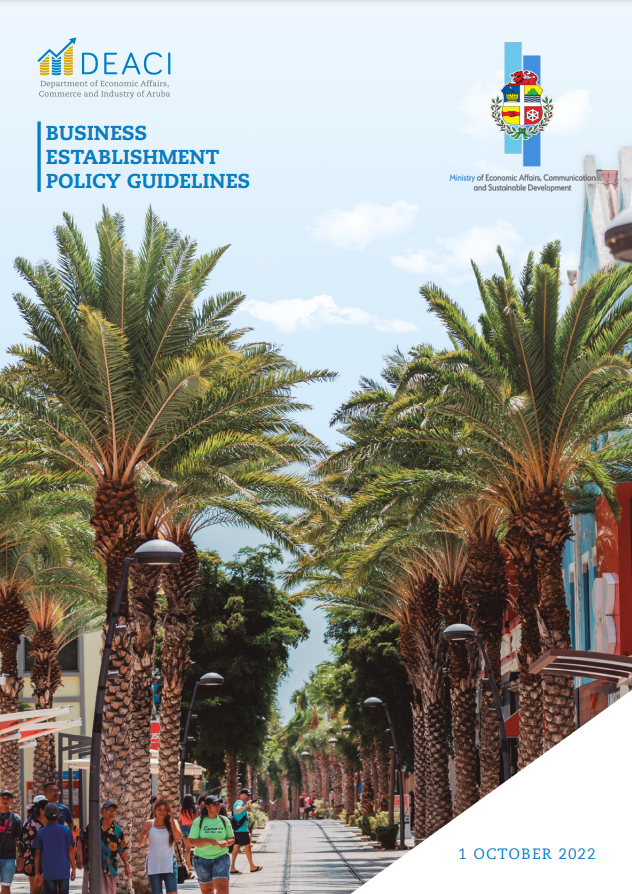As of October 1, 2022, the new Business Establishment Policy Guidelines took effect. The Minister of Economic Affairs, Communications, and Sustainable Development of Aruba, Mr. Geoffrey Wever, released this new guideline to enhance the ease of doing business and expand the opportunities for foreign entrepreneurs to establish business operations in Aruba.
The Government invested in taking the necessary steps to reduce the entry barriers for businesses, making procedures more customer-friendly by increasing digitalization and reducing requirements. All this is to foster diversification and strengthening of the Aruban economy. Below is a digest of the main takeaways.
Priority Investments
The most significant amendment concerns the addition of the category priority investments, which refers to any investments in:
– business activities in Aruba’s six promising sectors that includes knowledge economy, logistics, circular economy, creative industry, agriculture, and niche tourism;
– sustainable business activities that are activities with a social impact and environmental assessment; and
– business activities that contribute to revitalizing the city center of Oranjestad and the downtown area of San Nicolas, including projects such as real estate, culture, gastronomy, recreation, and others that stimulate living in these areas.
The possibilities to obtain licenses and invest in Aruba by companies with registered offices outside of Aruba or companies with registered offices in Aruba with more than 40% of shares being foreign-owned have also been broadened. Traditionally, 60% of the shares or economic value must be held by a local. However, priority investments are exempt from this.
Categories
The Government also amended the ‘locals’ and ‘A’ categories. The category locals now include individuals born outside Aruba who are married to or have a registered partnership with an Aruban-born individual or person who has acquired Dutch nationality in Aruba. Category A is now limited to foreign-born holders of European or American origin, who have been residing in Aruba for an uninterrupted period of 5 years, or any foreign-born individual living in Aruba for ten years uninterrupted.
Digital Applications
There is an increased digitalization and reduced documentation requirements for licenses to create a more customer-friendly experience. If applicable, the Department of Economic Affairs, Commerce and Industry will digitally apply for documents, on behalf of the applicant, at the Civil Registry office and the Chamber of Commerce of Aruba, thereby facilitating the investor through e-government services.
Red Tape to Red Carpet
All-in-all, the Government reduced the barriers to doing business, and more is still to come as they peel away the red tape and replace it with a red carpet in a welcoming bid to investors.
